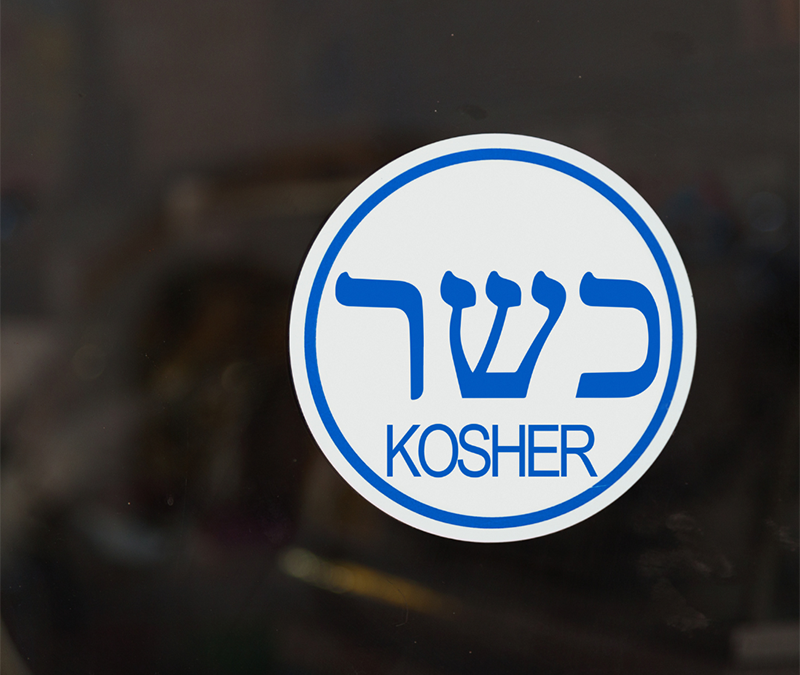The Basic Rules of Kosher Cooking
What Is the Purpose Behind Kosher Cooking? What Makes Cooking Kosher?
“One cannot think well, love well, sleep well, if one has not dined well”
–Virginia Woolf
Who doesn’t love a great meal? The truly great dining experience can be a feast not only for the taste buds, but for the eyes and the olfactory. Consider the unique textures of different foods and the simple sounds of pouring a glass of wine and you have a banquet for all five senses.
Though people of the Jewish faith love to eat as much as anyone, we also have dietary laws that are an essential component of our culture and beliefs. The body of law that sets forth those standards is known as kashrut and the term “kosher” is commonly used to identify the foods that comply.
Why Do We Have Kosher Laws?
The kosher laws have their origin in the Torah, and, more specifically, in the reverence with which the Torah calls us to treat all living things, including both animals and plants.
When Do the Kosher Laws Apply?
For observant members of the Jewish faith, the kosher dietary standards must be followed at all times, not just during high holy days, such as Passover.
What Are the Basic Rules of Kashrut?
Though the kosher laws can be somewhat labyrinthine, there are some fundamental principles that are fairly explicit:
- Certain types of animals are not kosher—All animals that have cloven hooves and that are ruminants (they chew cud for sustenance) are considered kosher. That includes such land animals as cows, goats, sheep, deer and buffalo. Aquatic creatures may be kosher, but must generally have fins and scales. Accordingly, shellfish are generally banned, but salmon, tuna and other saltwater and freshwater fish are okay. Poultry is kosher, provided the bird does not kill and eat other animals for sustenance.
- Any animal eaten must have died according to Jewish law—In general, the slaughter must have been as humane as possible. The person who kills the animal, known as the shochet, commonly kills it with a quick and deep cut from a knife across the throat, so that the death is virtually instantaneous. If the animal is found to have any disease or flaws in its organs, it may not be considered kosher. The meat will not be kosher if the animal died of natural causes, was prey of another animal or died by accidental means.
- The animal must be drained of as much blood as possible—Under Jewish tradition, the blood of an animal contains its soul. Therefore, before any animal meat may be consumed, it must have all blood removed.
- Certain nerves and fatty parts are not kosher—Kashrut prohibits consumption of the fat that surrounds any vital organ. It also bans eating the sciatic nerve and any blood vessels connected with it.
- Dairy may not be cooked together with meat—This comes from the Torah, which expressly states that a person may not “boil a kid in its mother’s milk.” The admonition applies to poultry, as well as beef, but does not prohibit eating fish or eggs with dairy. In addition, it may be improper to have fish and meat together at a meal.
- All fruits and vegetables are generally considered to be kosher—There are no restrictions placed on produce in kashrut.
- The use of utensils must also comply with dietary laws—Under kashrut, if you use heat to prepare a food in a pan, the food you cook will be transferred to the next food cooked in the same pan. You must then be careful that the next food cooked in that pan complies with Jewish dietary laws. For example, if you simmer goat in a skillet, you cannot subsequently cook something with cheese, butter or cream in that pan. Any utensils used in cooking something (with heat) have the same properties, so a spoon or spatula used to cook meat may not be used in the future to cook anything containing dairy products. Furthermore, the plates that you use will also have the same restrictions. The rule does not apply to foods that are not prepared with heat.
Gutterman’s and Gutterman Warheit—Serving the Jewish Community for Five Generations
At Gutterman’s and Gutterman Warheit, with funeral chapels in New York and Florida, we have provided funeral and burial services to the Jewish community for more than 125 years. We are familiar with the unique customs within each Jewish tradition and can answer your questions and offer guidance on any matter, from the order of service at the memorial to the choice of a casket or monument, preparations for sitting Shiva or the creation of a Yahrzeit calendar. We can work directly with the Chevra Kadisha, ensuring that the body has been prepared according to Jewish law before interment.
To learn how we can be of assistance, contact us by email or call us at one of the numbers listed below.
Gutterman’s & Gutterman Warheit — Where Relationships Matter
Family Owned and Operated Since 1892
Rockville Centre: (516)764-9400 | Woodbury: (516)921-5757 | Brooklyn: (718)284-1500
Boca Raton, FL: (561)997-9900 | (800)992-9262

